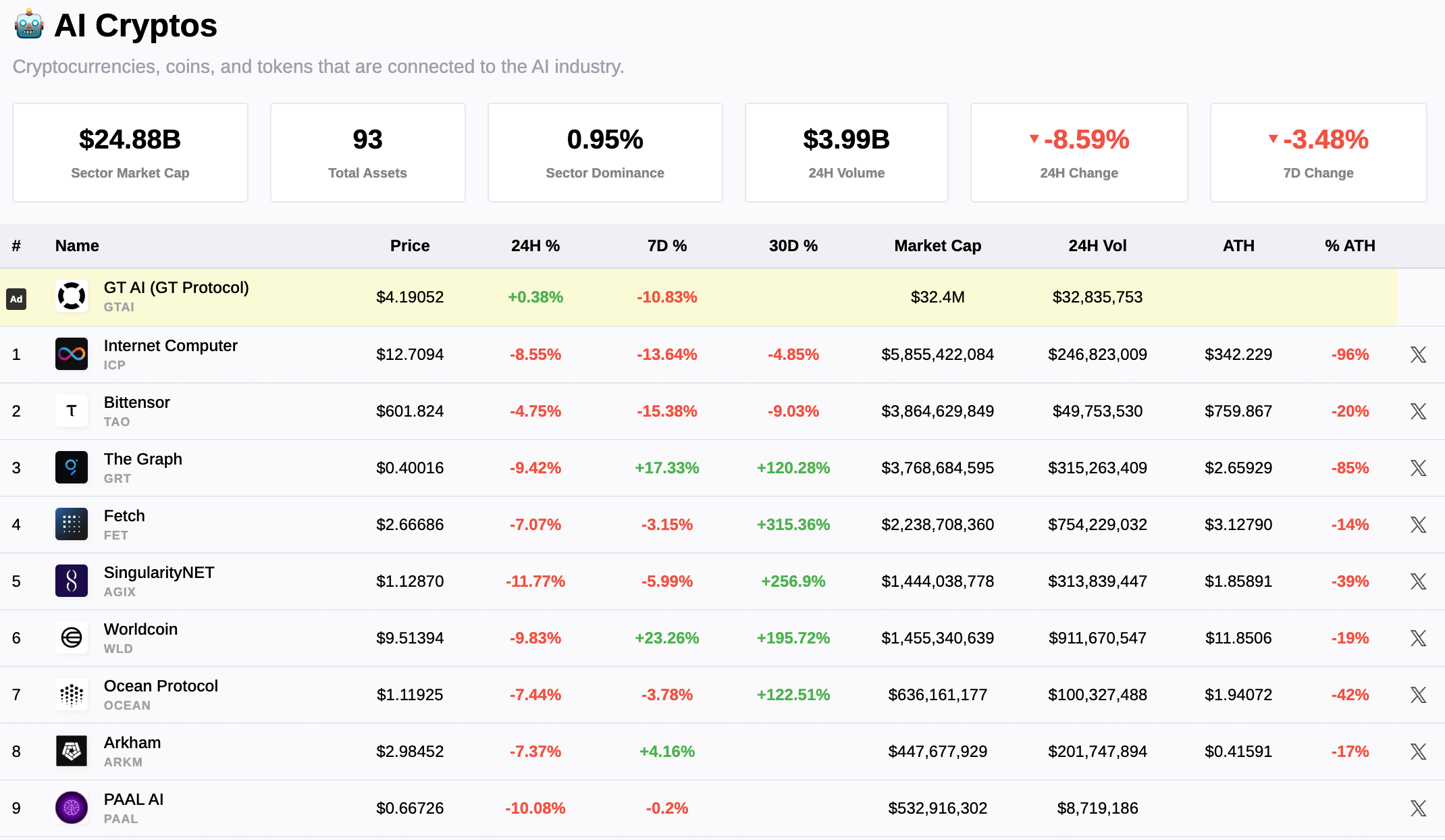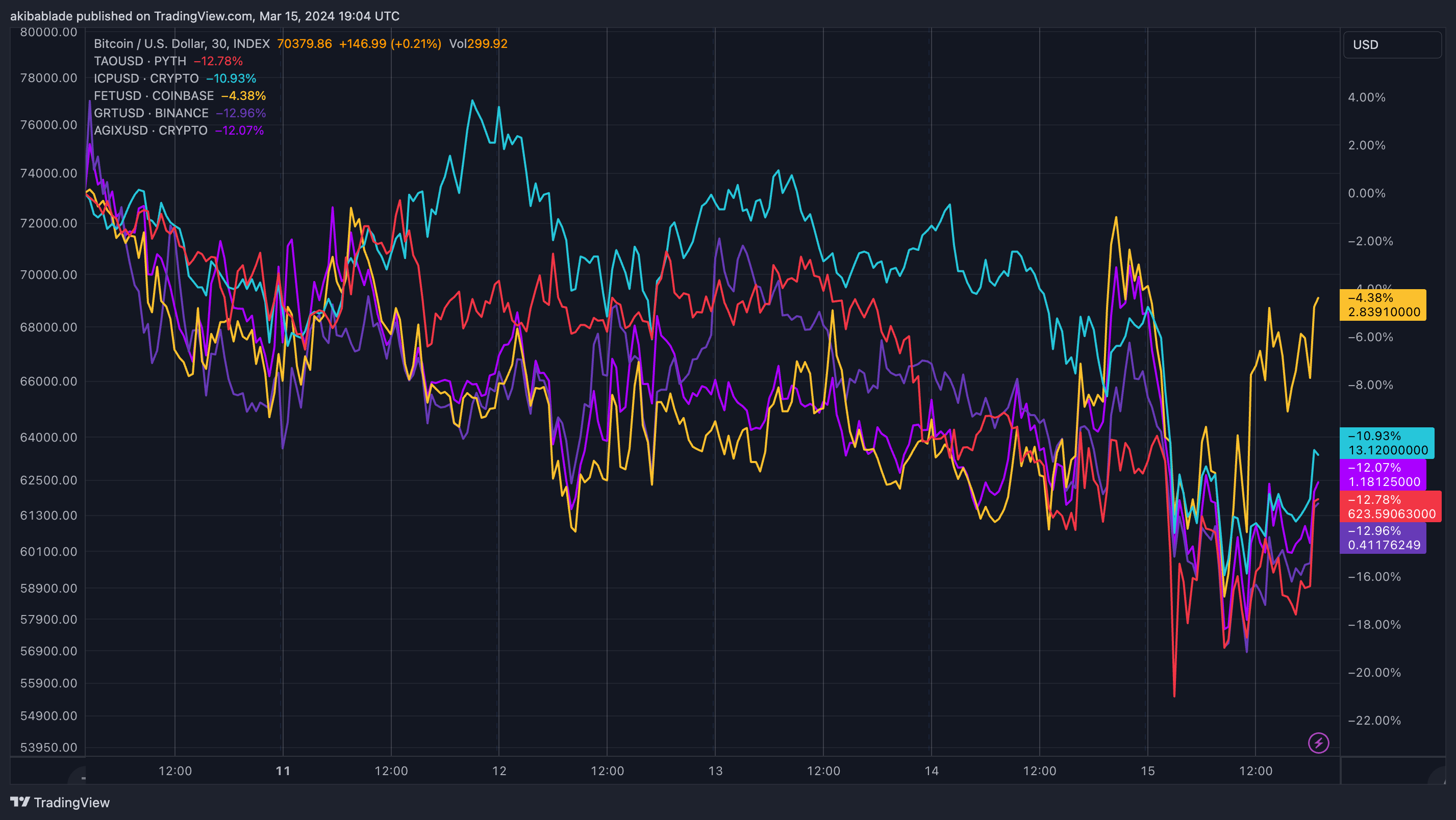After a face-melting rally in the AI crypto sector over the past few months, investors appear to have taken a profit-taking approach over the past few days. The sector soared past $10 billion in mid-February, buoyed by Bittensor’s remarkable climb to a $4 billion market cap with an increase of over 220% in 2024. By March, the sector had exploded to over $25 billion in market cap.
Around March 9, several projects hit new all-time highs, including Bittensor, Fetch, OriginTrail, Worldcoin, and Arkham, pushing the market cap close to $30 billion.
In the past few days, the sector has cooled to below $25 billion in market cap as investors seem to be taking profits after a potentially overheated market surge. While Bitcoin has also dipped, as of press time, it sits just 6% below its all-time high, while the top 10 AI crypto projects are mostly down over 20%.

Interestingly, many AI crypto coins have not recently been as closely correlated with Bitcoin as the rest of the market. Bittensor and Fetch, specifically have seemingly been treading their own course, moving down only when Bitcoin has made substantial moves. Even then, the coins often had a delayed reaction or moved against Bitcoin.
Fetch increased 140% in four days since March 6 before slightly retracing approximately 20%. Across the board, since the sector’s peak on March 9, Fetch is down 4%, ICP is down 11%, The Graph is down 12%, Singularity is down 13%, and Bittensor is down 12.8%.

While the rise of AI in 2023 saw an influx of new AI-related memecoins and hype projects, those currently sitting toward the top of the sector chart are primarily focused on real-life implementation of decentralized AI tooling. The work has attracted the attention of Ethereum’s Vitalik Buterin, Erik Voorhees, and other notable players in the crypto space.
The importance of decentralized AI models likely aligns with that of decentralized finance as the progress of AI development continues to ramp up. Blockchain and tokenization appear solid bedfellows for a distributed AI network, indicating the recent retracement is possibly profit-taking rather than investors losing faith in the burgeoning sector. However, with such rapid gains, it is also likely that investors will be eager to see progress in delivering technology.
Many of the top progress have live mainnets with projects actively building. The critical next step is to see whether a network effect can bring users on chain to engage with this fascinating cross-section of AI and blockchain. Bittensor, for one, is undoubtedly seeing demand for adoption as the cost to register one of its 32 subnets has risen from around $200,000 to over $5 million this month alone, with the price set by market forces rather than any centralized entity.
Mentioned in this article
This news is republished from another source. You can check the original article here

